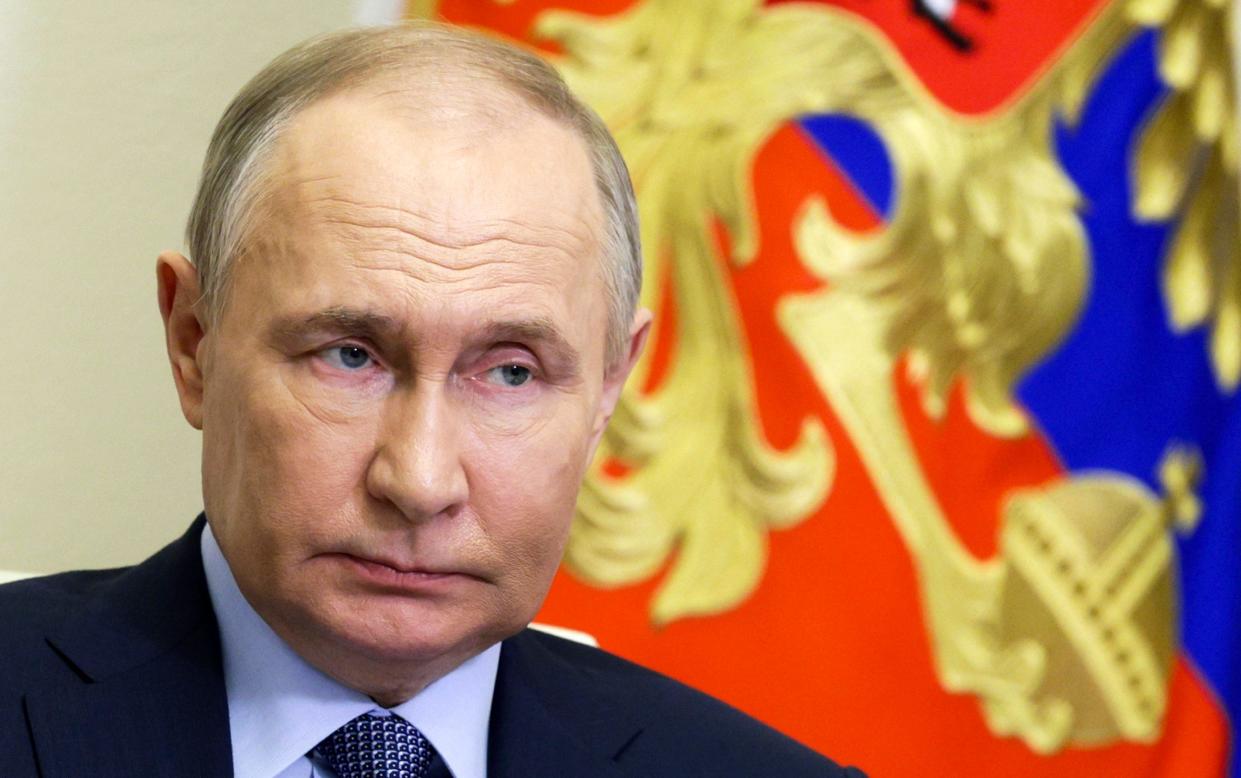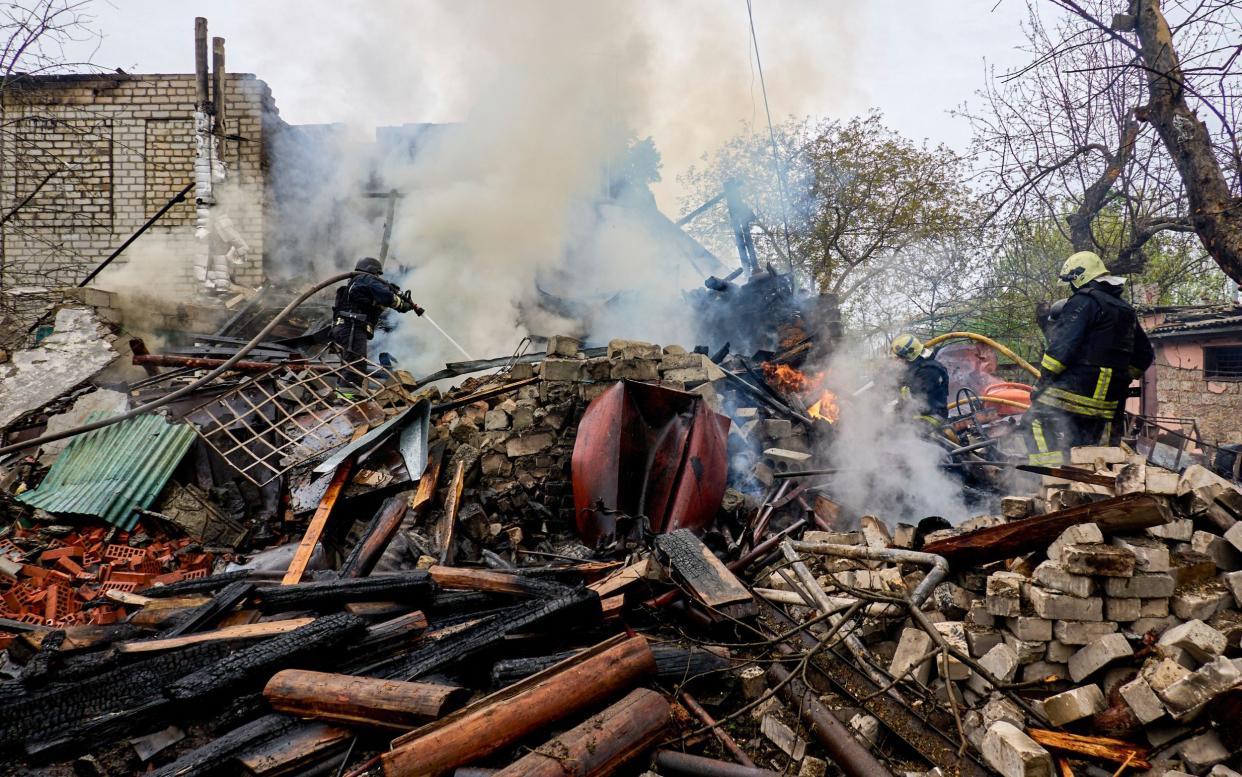Western banks have no excuse for funding Putin’s war machine

When Vladimir Putin’s tanks poured over the Ukrainian border, the world changed dramatically. With Russia’s status as a lethal pariah state confirmed, the time had come for everyone to pick a side.
For Western companies, it meant making some tough but very obvious decisions about their presence in Russia. Choosing to stay in the country was effectively the same as choosing to fund Putin’s war machine – chief executives knew the financial implications of continuing to do business with the Kremlin, not to mention the massive propaganda victory it handed Moscow.
The same applied to any organisation doing business with a Russian organisation or individual, or helping to facilitate Russian trade whether its oil, gas, coal or other exports.
Most Western outfits grasped the nettle and got out quickly, often suffering sizeable losses on the businesses they abandoned. Others dragged their feet but exited eventually, and at times under visible duress. Some said they wanted to get out but provided a whole variety of reasons as to why they couldn’t immediately.
For a while they were given the benefit of the doubt, on the understanding that it was the bureaucracy of Russia’s state machinery that was holding them back and a way through it would be found.
Yet, shamefully, more than two years later, a few remain, still hiding behind the same hollow excuses and still profiting in a country that continues to bomb Ukrainians, not to mention one whose leader has threatened Ukraine’s allies with nuclear Armageddon.

Putin’s missiles may be contained for now but he is at war with the entire Western world. Any company that has stuck around is a willful participant in that fight, and therefore stands to be remembered as an enemy of efforts to stand up to Russian tyranny.
The West’s troubled attempts to escape Putin’s grasp are exemplified by Europe’s big banks. Indeed in some instances, efforts have been so risible that they border on the farcical.
Whether it is intentional, or even worse perhaps, by accident, a number of the big banks are now generating far more money in Russia than they were before the war started, which means even greater sums are being funnelled into the Kremlin’s tax coffers.
The top seven European banks by assets – Raiffeisen, UniCredit, ING, Commerzbank, Deutsche Bank, Intesa Sanpaolo and OTP – racked up combined profits of more than €3bn (£2.6bn) in 2023. That’s three times more than in 2021. Tax revenues to Moscow now stand at €800m, a four-fold increase on pre-war levels.
Some of these big lenders, such as Deutsche Bank, its big German rival Commerzbank, and Hungary’s OTP have at least pared back their presence. Italy’s Intesa is the closest to exiting, but despite securing the necessary approval from Putin months ago to sell its Russian business to local management, “bureaucratic steps” have so far prevented it from closing the deal, Carlo Messina said in February.
A special mention goes to Austria’s Raiffeisen, an institution that made €1.8bn in Russia between 2021 and 2023 – equivalent to half of the Austrian group’s total profits.
Before the war it had been about a third – still an astonishing proportion for any major Western financial institution, and a reminder of the extent to which some companies have been willing to set aside any notion of a moral compass in the never-ending and single-minded pursuit of profit, despite bold claims to the contrary.
Raiffeisen claims to be “a proud pioneer of responsible banking in Austria”. It is even a signatory of the United Nations’ “Principles for Responsible Banking” – further proof, if any were needed, that the ethical investment movement is a sham and the UN is no longer a serious institution.
Companies have tried every excuse in the book to justify still being in a country that has killed an estimated 70,000 Ukrainian soldiers and more than 10,000 civilians, but none of them stands up to real scrutiny.
The common refrain is that it is impossible to withdraw. But that is untrue – there are numerous examples of it being done successfully, including at France’s Societe Generale, owner of Russia’s largest foreign-owned bank. It managed to get out less than two months after the invasion.
Moscow may have made it harder. But as arch-Kremlin critic and American financier Bill Browder has pointed out, some banks hoped they could keep their heads down and things would blow over, so it’s a bit rich to complain about being stuck now.
Many say they don’t want to sell out because the money goes directly to the Kremlin. But surely a one-off windfall is better than repeated tax receipts? The same argument is made against simply walking away – the rationale being that an even worse scenario would be to allow the assets to fall into the wrong hands. But surely Moscow profits either way?
Some are simply reaping what they sowed by getting into bed with Putin in the first place. Russia’s gangster regime status was firmly established long before it invaded Ukraine.
Browder has suggested European banks could stick their Russian operations in a trust and allow any benefits that accrue to fund victims of the war in Ukraine. Another option is to match every rouble paid in taxes to Moscow with a rouble towards helping Kyiv defend itself.
At the end of the day, it is too easy and convenient to throw up hurdles. Instead of coming up with endless excuses to stay, those still brazenly peddling their wares in Russia should be doing whatever it takes to get out.


